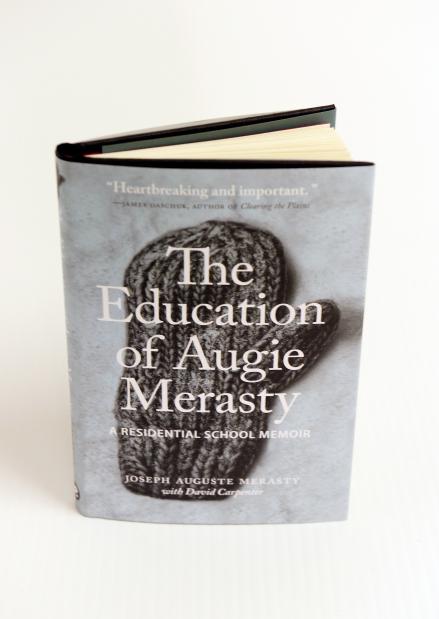|
A residential school survivor’s remarkable memoir
By Will Chabun
REGINA — It’s one of those things that writers do when they’re on the trail of a story: get up in the wee hours of a morning and drive 100 miles on the possibility they’ll find a special person. David Carpenter chuckles as he tells of his quest for Joseph August “Augie” Merasty, who years before shyly sought out a writer to tell his story. The elderly Cree trapper’s signature was needed to let the University of Regina Press publish The Education of Augie Merasty, a 76-page book that, through one man, tells the story of Canada’s experiment with residential schools. It is the story of how one of them failed Merasty, who attended the St. Therese Residential School at Sturgeon Landing in northeast Saskatchewan from 1935-44. The core of this book is the memoir Merasty wrote in longhand for the forerunner to the Truth and Reconciliation Commission, which has been hearing school survivors’ stories. Merasty wanted his story told. The contribution of Carpenter, an award-winning Saskatchewan author of fiction and nonfiction (his A Hunter’s Confession was the Saskatchewan Book Awards’ book of the year in 2010, for example) was to write a long introduction, massage spelling and grammar, and help shepherd it through production. One of the things that made this project so special for Carpenter was Merasty’s ability to be, on his better days, “wonderfully fair-minded”. Some of the staff at St. Therese, Merasty wrote, treated him and the 100 or so others very well. But others were perverted or sadistic, with a weakness for physical abuse when frustrated — and sexual abuse and touching, even rape, when they were unseen and could threaten or bribe students into silence. This book seems to have touched a chord. U of R Press spokeswoman Morgan Tunzelmann said the response from media outlets in Saskatchewan has been “astonishing” and Chapters is stocking it across Canada. Merasty was “really, really happy” when he recently saw his book. So were residential schools a good idea executed horribly — or a bad idea, period? Carpenter thinks a moment before answering, “the first”. From what he’s learned, it appears the federal government and the churches it hired to run them (Roman Catholic in the case of St. Therese) sought to keep First Nations people from being cut off linguistically from the rest of Canada. But where they failed was in their “unforgivable innocence”: not foreseeing how staff members could give in to temptations of temper and lust. Carpenter hopes The Education of Augie Merasty, despite its shocking content, gets into schools so children can understand why parents or grandparents were so mean or drank so much. As Merasty’s daughter, Arlene, told him: “Now, I know why!”. And once an entire generation knows why, she added, “This stops — here!”. Contact: wchabun@leaderpost.com
|
.
Any original material on these pages is copyright © BishopAccountability.org 2004. Reproduce freely with attribution.
